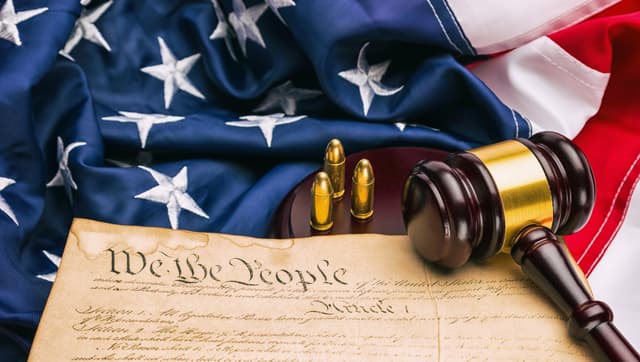Federal Court Dismisses Florida Ag Commissioner’s Lawsuit On Medical Marijuana Patients’ Gun Rights
- Florida Cannabis
- Federal Court Dismisses Florida Ag Commissioner’s Lawsuit On Medical Marijuana Patients’ Gun Rights
The disagreement is the outcome of a clash between state and federal laws. Patients in Florida now have access to medical marijuana, even though it’s still interdicted by federal law to own marijuana. This is an upshot of a constitutional amendment from 2016.
Florida Agriculture Commissioner Nikki Fried and other plaintiffs' case challenging federal limits on medical marijuana patients owning weapons was dismissed by a federal district court.
In a 22-page decision rendered on November 4th, Judge Allen Winsor granted the US Department of Justice's move to dismiss the case, which alleged the restrictions infringed Second Amendment rights.
The discrepancy between federal and state laws is the source of the issue. Numerous patients in Florida now have access to medical marijuana, even though it remains unlawful to possess marijuana under federal law.
Federal laws also preclude some people from purchasing and owning firearms, particularly those who use drugs illegally. Florida residents are not permitted to own or purchase weapons, according to the lawsuit, which was filed in April; this is because of federal limitations.
Using the Supremacy Clause of the U.S. Constitution, Winsor, a Tallahassee-based attorney, claimed that marijuana remains illegal despite the Florida constitutional amendment.
The Rohrabacher-Farr Amendment, a piece of federal legislation, forbids Justice Department officials from using federal funds to hinder states from enacting their medical marijuana laws. The amendment must be renewed annually because it is a part of the budget bill.
Winsor refuted arguments that the Rohrabacher-Farr Amendment turns medical marijuana use into "lawful practice."
Federal law prohibits the purchase and possession of weapons by people who have mental illnesses, criminals, and drug users. Winsor also cited earlier instances of legislation enacted to restrict access to weapons for those who are "besotted."
Plaintiffs protest about being equated to the mentally ill, but Winsor wrote that both groups of persons can be unreliable if they are armed regardless of whether marijuana users are classified as mentally ill or not.
Regular marijuana users are subject to the ban, and they are comparable to other groups that the government has historically viewed as being too risky to own firearms. Ultimately, the historical practice of restricting access to firearms for those the government justly deems harmful, such as alcoholics and mentally ill individuals, is adequately equivalent to the laws presently in place that exclude access to firearms for those who use illicit substances regularly. This offers even another justification for abiding by the disputed laws.
